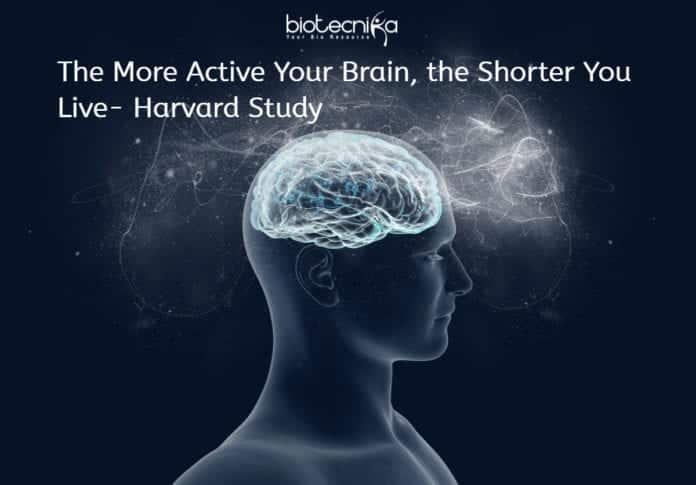Relation Of Brain Activity With Life
Multiple factors influence the longevity of our lives. Some of the factors include genetic makeup, which is considered to be a bit difficult to alter. Other factors, like lifestyle and environment, are a bit easier to change.
A new study demonstrates that excessive neural activity in the human brain is linked to a shorter lifespan. Suppressing that extra activity could prolong life. The finding is preliminary and will require more detailed research before the results are considered for concrete health recommendations. Nonetheless, this study opens up the possibility of using either drugs or behavioral interventions, including meditation, to alter the brain’s activity.
Dr. Bruce Yanker co-author and professor of genetics and neurology at Harvard Medical School says that the mechanism that controls brain excitation is closely related to the one that controls metabolism. This has long been linked to lifespan.
The fact that less brain activity was associated with longevity at first seemed “counterintuitive” to Dr. Yanker. He assumed an active brain would be linked with better health and vitality.
Relation Of Brain Activity With Life- The Study
Dr. Yanker and his colleagues examined the brain tissue of hundreds of deceased human subjects, grouped by their age
of death. Interestingly, they found that the brain tissue of those who lived longer- dying at 90 or 100, suggested they had experienced less neural activity than those who died at a younger age.Researchers used worms as their subject of study due to their short, easy-to-study lifespans.
Using brain imaging techniques, scientists saw that worms’ neural activity increased with age. When the researchers gave the worms drugs that would calm some of that neutral activity, they lived longer. When the Harvard scientists stimulated the worms’ neurons, they died faster.
Next, the scientists tried to find the “CEO protein.” The CEO protein controls all of this neural activity. Using computer algorithms, scientists narrowed the search down to a protein called REST. According to Yanker’s lab, REST proteins could protect the brain from dementia.
Relation Of Brain Activity With Life- A Major Breakthrough
This research suggests that REST could be a useful target for drugs meant to cure neurodegenerative diseases like Alzheimer’s. Prior studies have shown that, as Alzheimer’s progresses, patients have excessive neural activity in the hippocampus region- the part of the brain where the disease often originates.
Aside from the promising avenues for drug research, Yanker says the work suggests habits and behaviors that affect the brain’s neural activity. He added that yoga and meditation could potentially prolong lifespan.
Yanker says the paper is a promising step toward understanding how “a person’s thoughts, personality, and behavior affect their overall health and longevity.”






























